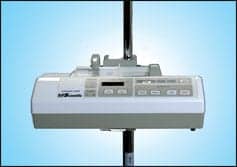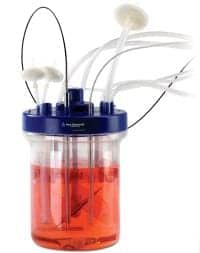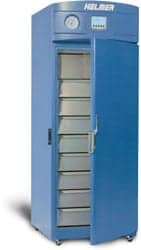ViraCor Laboratories announces the launch of a new cytomegalovirus (CMV) antiviral resistance test that provides diagnosis days faster than other tests on the market.
Developed in ViraCor’s laboratories, the molecular test accurately detects key genetic mutations associated with antiviral resistance in CMV in three days or less. Turnaround time on most CMV antiviral resistance tests is up to two weeks. By quickly and accurately identifying if a patient has an antiviral resistant CMV infection, physicians can begin or modify the appropriate treatment regiments faster, which reduces healthcare costs and potentially saves lives.
CMV is a very common virus that, according to the Centers for Disease Control, infects up to 80% of adults in the United States by the age of 40. For people with weakened immune systems, such as transplant patients and those undergoing cancer treatment or infected with HIV, CMV can result in serious illness or death.
Because of the virus’ prevalence, immunocompromised patients are frequently prescribed antiviral therapies to prevent a likely CMV infection. Unfortunately, with continued antiviral use, patients can develop CMV infections that are resistant to these treatments.
“In patients with compromised immune systems, it is critical for doctors to start the right CMV treatment quickly — before serious infection sets in,” said Steve Kleiboeker, PhD, Chief Scientific Officer of ViraCor Laboratories. “When we created our CMV antiviral resistance testing service at ViraCor, we were committed to providing the fastest turnaround time possible. We start processing every sample the day we receive it so that doctors can detect antiviral resistant strains of CMV in their patients within a few days, start the right treatment and avoid complications from infection.”
CMV can lead to a number of medical complications for people with compromised immune systems including interstitial pneumonia, gastrointestinal infection, central nervous system disease, hepatitis, retinitis and encephalitis. In organ transplant patients, the virus has been associated with organ rejection and dysfunction, increased risk for bacterial or fungal opportunistic infections, and the development of Epstein-Barr Virus-associated post-transplant lymphoproliferative disease.
Data has shown that, without antiviral intervention, symptomatic CMV infections occur in up to 50% of kidney-pancreas transplant recipients, 41% of heart-lung transplant recipients, 35 percent of heart transplant recipients, and 32% of kidney transplant recipients.
Common antiviral therapies for CMV include ganciclovir, valganciclovir, foscarnet, and cidofovir. ViraCor’s CMV Antiviral Resistance test detects key mutations associated with resistance by sequencing the CMV UL97 phosphotransferase gene and the CMV UL54 DNA polymerase gene. Mutations in the UL97 phosphotransferase gene have been associated with ganciclovir resistance. Mutations in the UL54 DNA polymerase gene have been associated with resistance to ganciclovir, foscarnet, and cidofovir. As part of this new testing service, ViraCor provides scientific analysis and clinical interpretation of gene mutations associated with antiviral resistance.
“Laboratory testing is essential to diagnosing an antiviral resistant strain of CMV, but, unfortunately, doctors usually have to wait up to two weeks to get results. This delay can jeopardize a patient’s health and lead to the prescription of unnecessary and toxic medications,” said John Martin, president of ViraCor. “At ViraCor, we are very pleased we can provide physicians the ability to get accurate CMV antiviral resistance test results within three days. This unmatched turnaround time will give the doctors we serve the ability to provide better care to their patients and, ultimately, save lives.”




